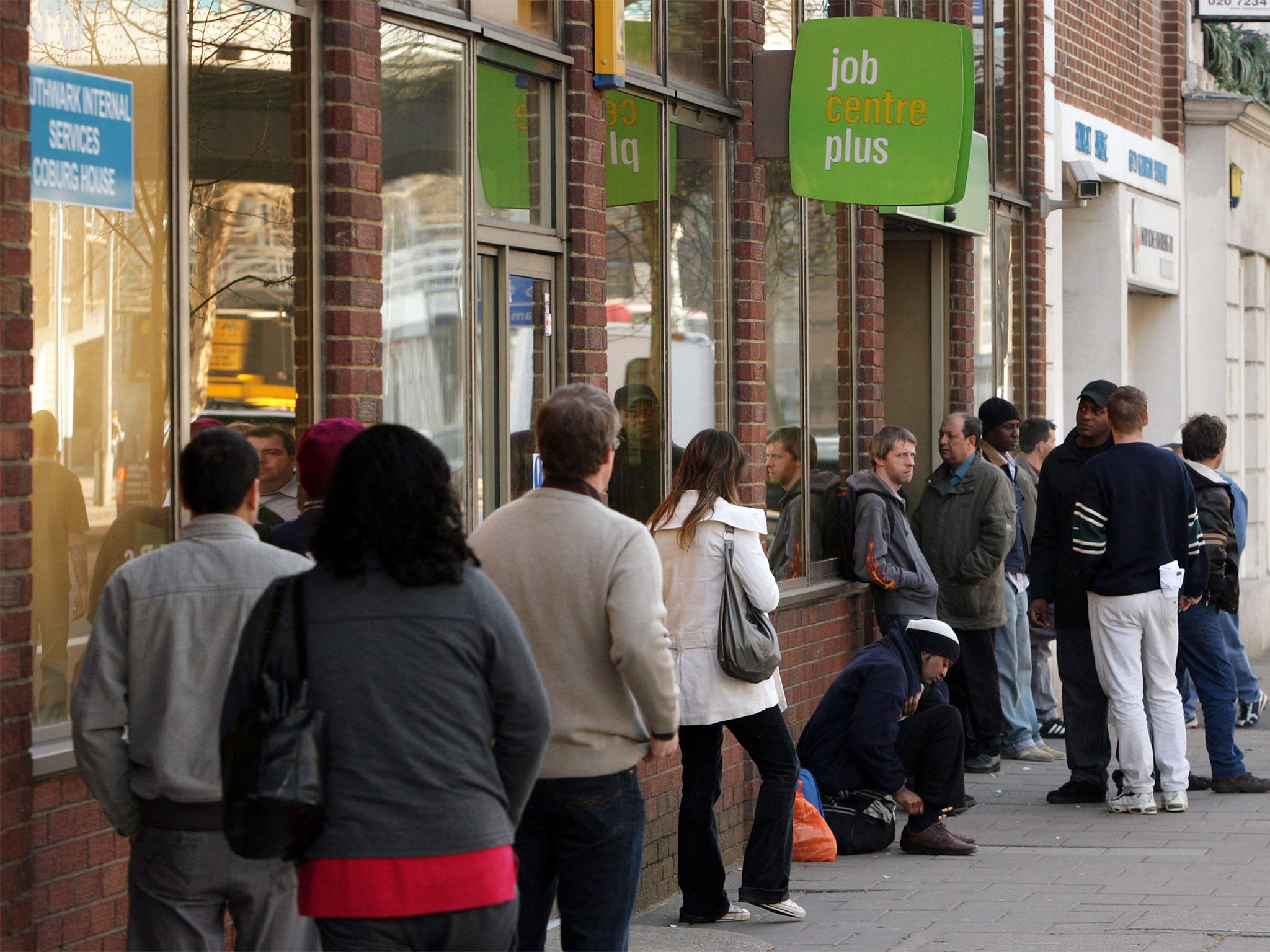The biggest irony of all? Cutting someone's welfare makes them even less likely to get a job
Now we have the stats to prove what we knew all along – welfare cuts are based on stereotypes not evidence


Your support helps us to tell the story
From reproductive rights to climate change to Big Tech, The Independent is on the ground when the story is developing. Whether it's investigating the financials of Elon Musk's pro-Trump PAC or producing our latest documentary, 'The A Word', which shines a light on the American women fighting for reproductive rights, we know how important it is to parse out the facts from the messaging.
At such a critical moment in US history, we need reporters on the ground. Your donation allows us to keep sending journalists to speak to both sides of the story.
The Independent is trusted by Americans across the entire political spectrum. And unlike many other quality news outlets, we choose not to lock Americans out of our reporting and analysis with paywalls. We believe quality journalism should be available to everyone, paid for by those who can afford it.
Your support makes all the difference.In the age of ‘strivers’ and ‘skivers’, benefit cuts introduced by the Government have been justified by the need to “make work pay”. But the Government’s own research, published this week, has revealed that one of the cornerstones of the austerity campaign – that cutting benefits means recipients will be more likely to find work – is fundamentally flawed.
Researchers have found that cutting unemployed peoples’ benefits had the opposite effect to that you might expect. The study, carried out by Oxford city council and the Department for Work and Pensions, found unemployed people become less likely to get a job when benefits are cut. Instead of looking for work, they are forced to devote their energies to surviving day-to-day. For every £1 in benefits cut per week, a person’s chance of getting a job drops by 2 per cent.
This comes after another study revealed that more than a million Britons are living in “destitution”, struggling to afford food, toiletries and travel expenses – all of which can also reduce their job prospects as stressed and demoralised people attempt to secure work while hungry, lacking basic hygiene and unable to afford to travel for employment.
The onslaught of welfare cuts against vulnerable people has been justified by the continued false belief that unemployed people simply aren’t trying hard enough. We’re told they are lazy and workshy, that they need a shock to motivate into accepting one of the many decent jobs available to them. That is clearly not the case.
The “dependency culture” in which unemployed working class people are claimed to live is simply a myth – and yet the Government seems willing to actively create it. Many people on unemployment benefits are living on the poverty line, and a significant number have already slipped under it. By cutting unemployment benefits, the Conservatives are enacting the very thing they claim to be trying to stop; reducing peoples’ chances of getting off benefits and into work, trapping them in a cycle of poverty and state dependency.
The political justification of austerity has always been tenuous. It relies on unfair stereotypes about vulnerable and working class people in place of evidence. Today, we have the evidence. In light of this new research, this Government can no longer justify its rhetoric about unemployment benefit cuts.
If the Conservative party really cares about supporting people who are seeking work, and fundamentally reducing state dependency, it must urgently re-evaluate its policy on welfare and work.
Evidence-based research and public policy should inform Government practice. We know from countless studies that the Government would reap higher rewards by investing in vulnerable and disadvantaged groups: supporting single parents with child care access, improving education resources in working class communities, and helping disabled people to gain the support they need to find and hold down work.
For many people, the cruelty of benefit cuts has been all too apparent from the start. In light of this recent evidence, the Government must now admit it got it wrong and act to repair the damage of welfare reform while it still can.
Join our commenting forum
Join thought-provoking conversations, follow other Independent readers and see their replies
Comments